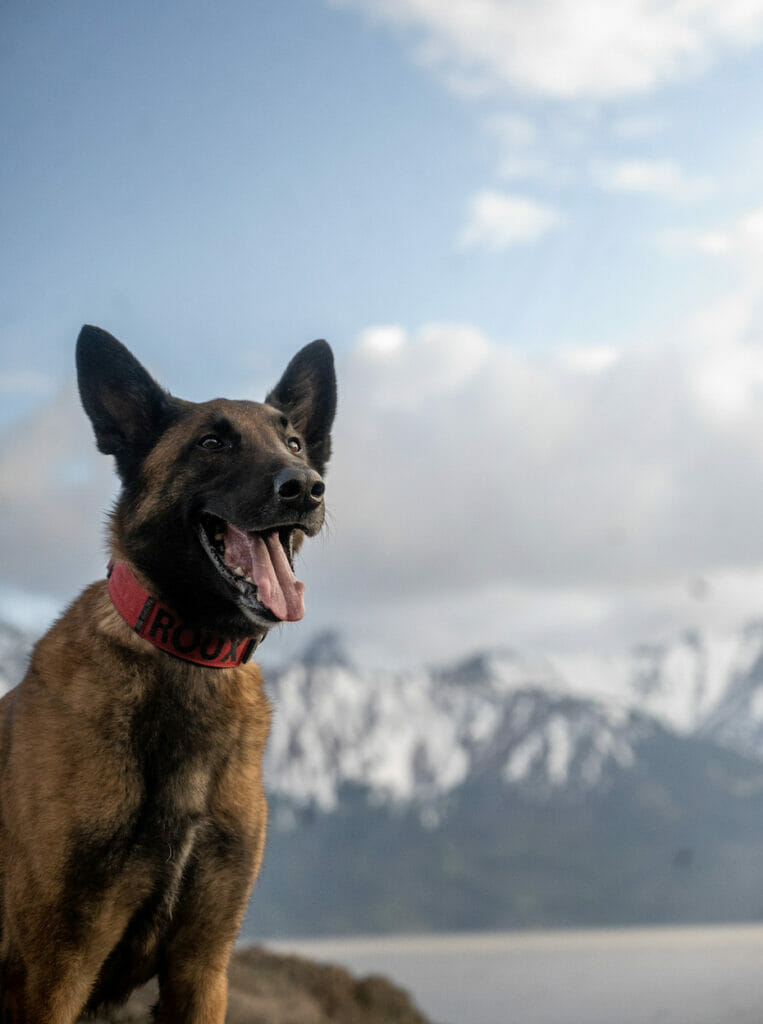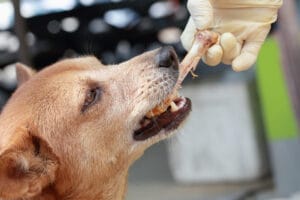We’re celebrating all kinds of incredible working dogs and learning more about their jobs. We first chatted with The Guide Dog Foundation (check it out here) to learn about guide dogs. This time, we sat down with veterinarian and Search and Rescue handler, Laure Molitor, to talk about some lesser known heroes, Search and Rescue dogs!
Laure, how did you become involved with Search & Rescue?
I started 4 or 5 years ago and it was something I always wanted to do–I’ve been in the dog space for years as a vet before I ended up in Search and Rescue. During my post-grad program, I adopted a dog, Rougaroux, who had a great foundation for training and it all came together from there. It was a bit backwards from traditional SAR because usually you do the training first as a handler and then get the dog second but I got the dog first and then started training. Now, I’m with Snohomish Search and Rescue!
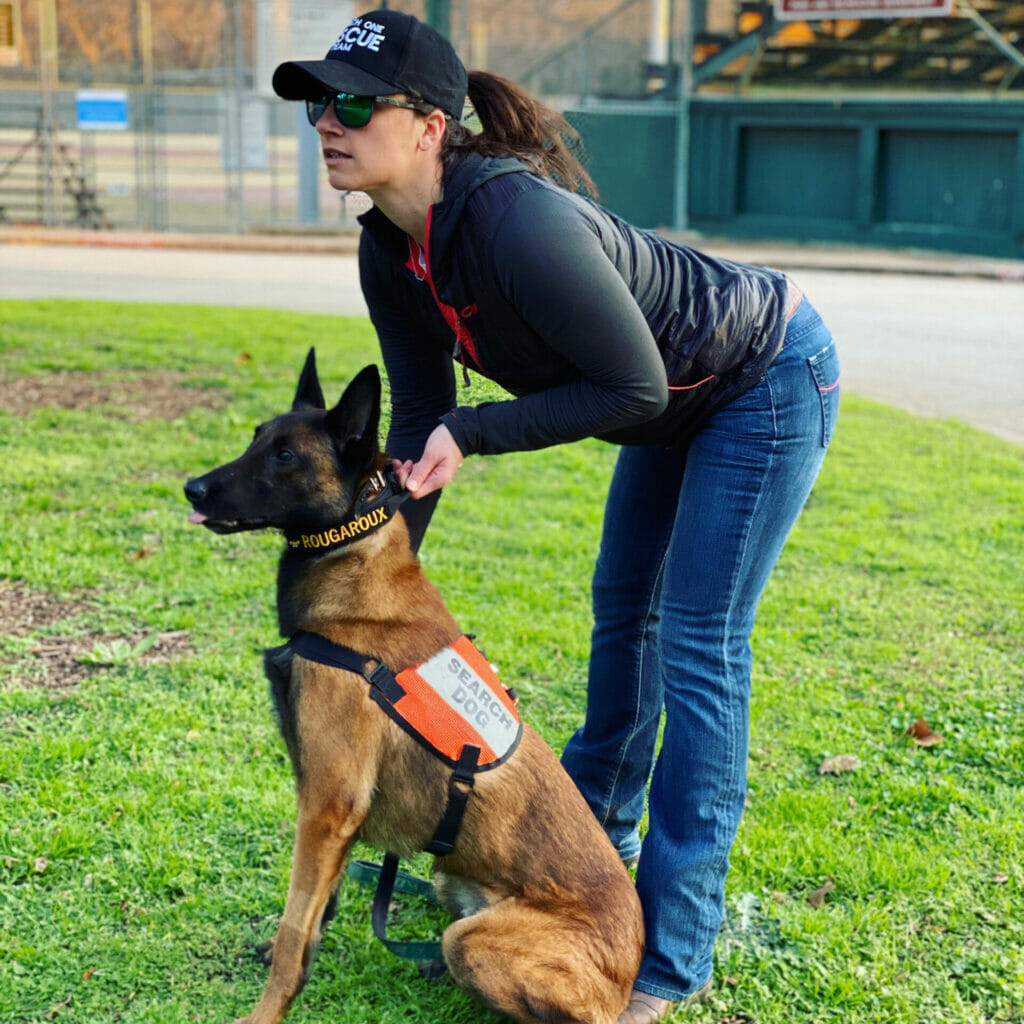
What’s the preparation process like for the dog and the handler?
Training is a long process for both you and your pup. The handler needs to train for 1 year to get certified and on top of that, your dog needs 12-18 months of training to be certified. There’s also foundational training work pups should be familiar with before SAR training starts. For example, they need a solid foundation of obedience, comfortable off leash, and have strong recall for their own safety when doing Search and Rescue training.
How do you train a dog to Search and Rescue?
So eventually, the pups can find a person who’s lost by smell. The training process happens through exposure to finding someone and being rewarded with treats. First, the dog’s handler will hide; and when the pup finds them, they get a treat or a toy. You start with their handler because they are the most important person to that dog so the puppy will automatically go to find their owner. Next, another person will run away and “hide” while the handler stays with the dog. The pup is then taught to find the other person–and gets lots of treats when the person is “found”. Eventually you add in distance of search, length of search, and variabilities of where the person is hiding so that it is similar to real life scenarios.
What’s a day in the life of a SAR dog?
When I’m at work at my main job (I’m a vet!), my pup lounges and gets a well deserved rest. But training days can be pretty long. Usually they’re 6-hour days on 100+ acres. The pre-training consists of a debrief with the team, assessing the safety of the environment, checking to see what the weather is like, and whether anyone is injured, so that we are setting ourselves up for success in real Search and Rescue scenarios. Then comes the actual training which can go until 5pm at night, where we run through search and rescue scenarios. Since Search and Rescue missions are often long, the dogs need to be comfortable training all day and handlers need to be cued into their dogs responses to properly carry out the Search and Rescue missions.
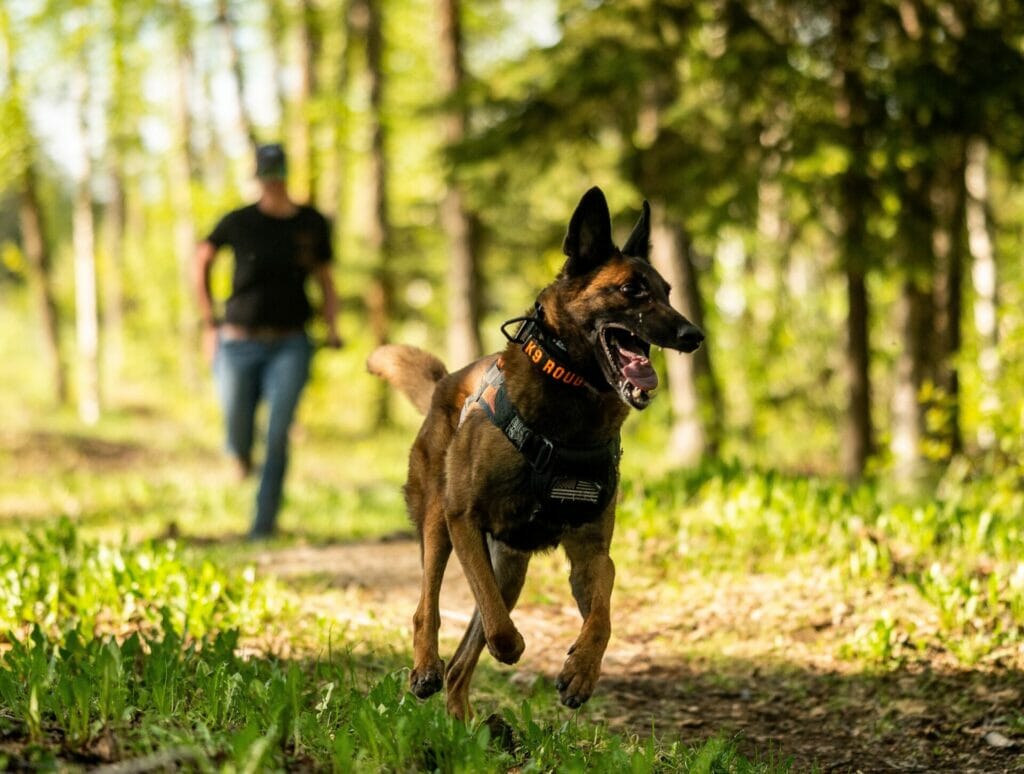
How’d you find SAR?
When I was younger, I saw a ski patrol working with avalanche rescue dogs. It was incredible to watch and I knew it was something I wanted to do. To actually get involved, you start by just showing up! I found my local Search and Rescue groups and came to a few training sessions so the team knew I was serious about the work and wanted to get involved. The rest is history!
What makes Rougaroux so incredible?
I rescued Rougaroux from a pretty bad situation, but he’s been so resilient. I think resilience is what makes him so special! Rougaroux will get knocked down and stand back up every single time. His eyes light up when he’s training and rescuing. He inspires me to keep training! He’s a phenomenal friend and I’ve traveled to all of these places through Rougaroux. Truly, it is an honor to be a part of his life.
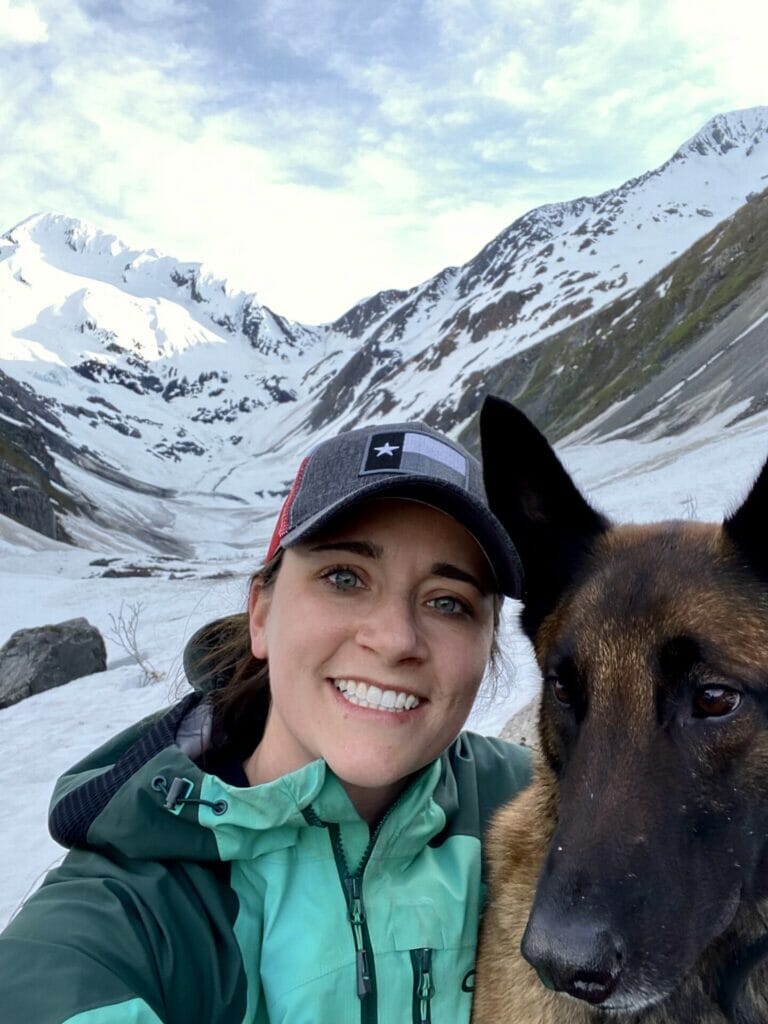
What are the best practices for interacting with Search and Rescue pups?
Similar to many working dogs, you don’t want to pet them while they’re in action. It can be distracting to them and harmful to the success of the rescue. Outside of a mission, these pups are super people friendly and are resistant to picking up “bad” behaviors (like begging for food, being aggressive, etc.), since they’re trained to be non-reactive to anything. They also are often at PR events, so they are comfortable in public settings (they’re stars on camera!).
For people who are interested in getting involved, are there opportunities for getting involved?
You can look for Search and Rescue groups near where you live–some Search and Rescues are run by the county since they’re essential for safety (think Colorado and the frequency of avalanches!). In Texas, though, they’re based out of cities so it is easy to go online and find those to reach out. I highly recommend getting involved and the continuous exposure to new people and pups is great!


